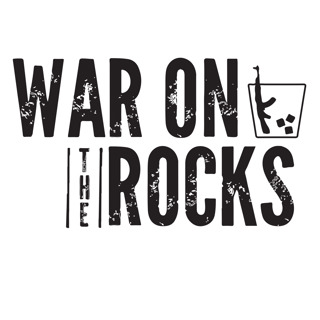
The Most Dangerous Phase for Ukraine?
This is not an optimistic episode. Michael Kofman speculates that the war might be in its most dangerous phase. Why is that? Ukraine's casualties and shortages in munitions are beginning to show as Russia is gaining some operational advantages in the Donbass. Further, Russia's efforts to fill its manpower gaps have been partially successful without relying primarily on conscripts and conducting a large mobilization. Ryan and Mike speculate that, in the end, this war will be decided by the country that can endure the longest, in terms of their economies, logistics, materiel, and political will. And Ukraine's endurance is tied up closely with the will of the West to continue backing Ukraine with arms and other supplies in a war that could continue to drag on for months, if not years.
13 Juni 202219min

What the Experts Got Wrong (and Right) About Russian Military Power
It is now widely understood that many observers, in advance of this war, over-estimated Russian military performance and underestimated Ukrainian military performance. Prominent among those observers are those who specialize in analyzing the Russian military. To better understand what they got right and wrong, Ryan put two of those specialists — Dara Massicot of RAND and Michael Kofman of CNA — into conversation with two people who approach this conflict as generalists — Chris Dougherty of the Center for a New American Security and Gian Gentile of RAND. Do not miss this vivid discussion.
30 Maj 20221h

The Battlefields of the Donbass and Beyond
Michael Kofman sat down with Ryan again to sort through how the war in Ukraine is proceeding, with a focus on the Donbass, where Ukraine and Russia are concentrating their forces. Beyond the battlefields, Kofman ponders the future of the Russian armed forces and reports what he learned at a recent conference in Poland.
24 Maj 202219min

Counter-Attacks and Can-Kicking in the Russo-Ukrainian War
Russia's stumbling war was launched almost three months ago. As Russian and Ukrainian forces battle on, how should we understand the state of play? Michael Kofman joins Ryan again to discuss the war on the ground, in the air, and at sea; Ukraine's ability to get Western weaponry into the fight; the crushing economic realities on both sides; how Vladimir Putin's Victory Day speech was the dog that didn't bark; Russia's stark mobilization constraints; and why a sliver of an island named after a snake has played such a prominent role in the conflict. Ryan puts an important question to Michael as Russia faces the real possibility of defeat: Under what circumstance would Putin use nuclear weapons?
14 Maj 202236min

The U.S. Military Might Be More Like Russia's Military Than You Think
Did that title get your attention? It got Ryan's attention too when it came out of Steve Blank's mouth. If you're a War on the Rocks reader/listener, you've probably heard of him before. A successful entrepreneur, businessman, and veteran, Steve was one of the key architects of Hacking for Defense and, most recently, the Gordian Knot Center for National Security Innovation. And he is decidedly not optimistic about the state of U.S. defense innovation. In fact, he worries that the Defense Department's inability to innovate quickly and at scale might lead to defeat in a war against China. What about all these new entrants into the defense marketplace? Can the U.S. Defense Department be reformed before a catastrophe? And what are the stakes? Our guest answers these questions and more. And don't miss his tour de force presentation, "The Secret History of Silicon Valley."
12 Maj 202218min

Ukraine's Military Advantage and Russia's Stark Choices
Our friend Michael Kofman popped in for another conversation with Ryan about where things stand in the Russo-Ukrainian War. He gives a wide-ranging assessment of Russia's unfavorable position as it musters an offensive in the Donbass that might be the last one that the Russian military is capable of launching before it is a spent force. From Ukraine's advanced Western kit to holdouts in Mariupol to the naval state of play to Russia's dire manpower shortages, Mike and Ryan discuss it all. Mike also gets into the nitty gritty on Russian infantry manning levels.
27 Apr 202238min

From Ukraine and Beyond: Unpacking the Sino-Russian Relationship
This is the national security podcast crossover of the century! Or at least of the year...ok maybe of Spring 2022! For this special episode, Doyle Hodges of TNSR and "Horns of a Dilemma" hosts Zack Cooper, Melanie Marlowe, and Chris Preble of "Net Assessment." They try to sort through relations between Moscow and Beijing in this time of war, as well as a whole bunch of related issues. And yes, they engage in the airing of grievances, a "Net Assessment" tradition. Make sure you subscribe to their podcasts, which are a part of the War on the Rocks family.
22 Apr 202250min

A Conversation with the Counselor: Derek Chollet on Navigating the World
A veteran State Department official and scholar, Derek Chollet is serving as counselor to the secretary of state. He sat down with Ryan to discuss the various challenges facing U.S. foreign policy. Don't miss their wide-ranging conversation on the diplomacy that preceded the Russian invasion of Ukraine, the diplomacy that continues to keep Western allies on the same page, the withdrawal from Afghanistan, and the difficulties of balancing an increasingly competitive strategy in the Indo-Pacific while dealing with a brutal war in Europe.
13 Apr 202243min






















